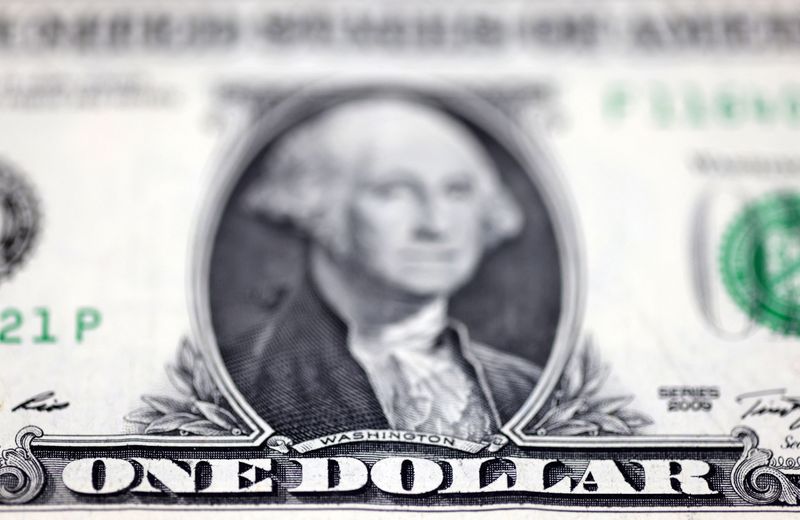By Vidya Ranganathan and Harry Robertson
SINGAPORE/LONDON (Reuters) -The dollar climbed on Monday and cryptocurrency bitcoin hit a three-month high as a rise in U.S. bond yields and the looming presidential election continued to impact markets.
Currency moves over the past week were driven by the European Central Bank’s accommodative rate cut and strong U.S. data that are raising expectations about how quickly U.S. yields could fall, especially if former President Donald Trump becomes president.
The , which measures the dollar against major rivals, was last up 0.17% at 103.65.
Yields fell 0.3% on Friday as risk appetite broadly increased in markets after China announced more details of its broad stimulus package, but rose 0.55% this week.
The euro fell 0.16% to $1.0849 and the pound fell 0.2% to $1.3022.
The dollar’s strength has been “largely a rate and relative growth story,” said Erik Nelson, a macro strategist at Wells Fargo.
“You’ve had relatively solid US data, starting with the jobs report earlier this month. You’ve had decent retail sales, GDP is tracking quite well this quarter. On the other hand, Europe is not doing very well, the ECB is not doing very well. on the mild side…so it was this divergence story.”
Opinion polls showing former President Donald Trump will win the Nov. 5 election are also helping the dollar against some currencies, analysts say, as his proposed tariff and tax policies are seen as likely to keep U.S. interest rates high and hurt trading partners.
got a lift from Trump’s improving prospects as his administration is seen taking a softer stance on cryptocurrency regulation. The stock last rose 0.2% to $68,555 after peaking at $69,487, bringing gains since October 10 to 18%.
YEN DOWN
The yen fell 0.2% to 149.84 per dollar, but remained on the stronger side of 150 per dollar after briefly breaching that level last week for the first time since early August.
The clearest way to express Trump’s rate risk was (buying) dollars against the euro, the Swiss franc and the Mexican peso, Chris Weston, head of research at Australian online broker Pepperstone, said in a note.
“Traders must decide whether this is the right time to place election trades with more conviction,” Weston said.
Last week the yen fell by 0.3%, the euro by 0.6% and the pound remained stable. The Mexican peso fell 3%.
The euro has fallen more than 3% in three weeks, breaking through the 200-day moving average and near a 2.5-month low.
The closely watched spread between US and German yields has widened to around 189 basis points (bps) as US yields have risen in recent weeks while German yields have fallen.
ECB governors at Thursday’s interest rate meeting argued for dropping the pledge to keep policy tight as inflation could now be lower than expected just a few weeks ago, sources told Reuters.
Yields have also shifted against the pound in Britain this month due to weaker inflation figures and expectations. Finance Minister Rachel Reeves will announce a bond-friendly budget on October 30.
The difference between US government bond yields and government bond yields has risen from 24 points in favor of the British pound to 3 points negative.

With no major economic events happening this week, the market’s focus will be on corporate earnings and the US elections.
Japan will hold general elections on Sunday, October 27. Although opinion polls vary on the number of seats the ruling Liberal Democratic Party (LDP) will win, markets are optimistic that the LDP will prevail together with junior coalition partner Komeito.


